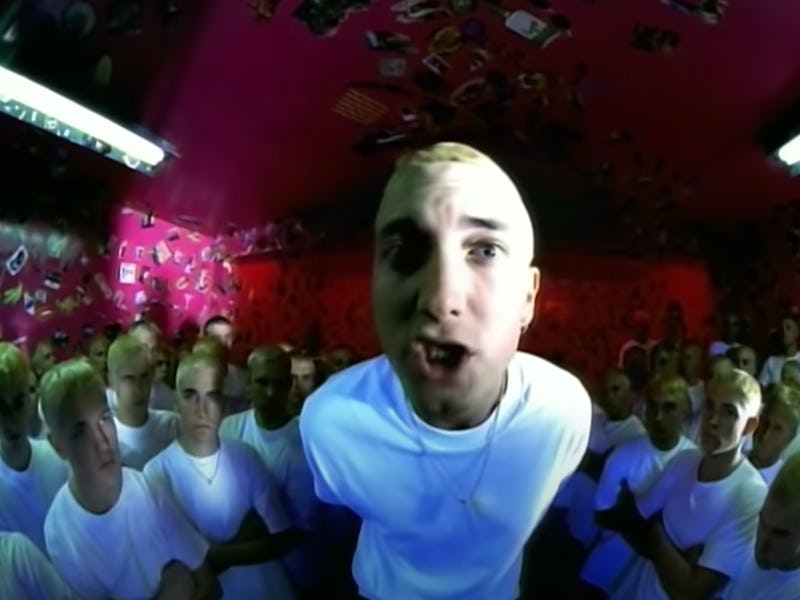Deepfakes
A deepfake Slim Shady slams Zuckerberg in diss track
The lyrics and voice were generated by AI models.

At this point in Facebook’s history, virtually everyone has strong feelings about CEO Mark Zuckerberg. Whether you’re accusing him of anti-conservative bias or critiquing a string of underwhelming misinformation, hate speech, and data privacy policies, Zuckerberg’s short on friends these days.
In an effort to get some of this communal rage out, a group of YouTubers... made an Eminem-styled deepfake diss track.
Lose yourself in the code — Eli Weiss and Jacob Vaus of Calamity AI and YouTuber 30 Hertz collaborated on the track using the help of multiple AI systems. The duo from Calamity AI told Digital Trends they simply input “Mark Zuckerberg diss in the style of Eminem” into the GPT-3-powered program Shortly Read. The generated lyrics were then applied to a synthesized, vocal doppelganger for Eminem created by 30 Hertz using Tacotron 2.
The end result starts off surprisingly well, but it’s clear there’s no genuine artistry to the track. Without being fed specific information, Shortly Read drew accurate connections to Zuckerberg’s companies and even knew he’s married. Both AI programs also picked up on central themes and stylistic choices the Grammy Award-winning rapper makes — even the misogyny.
As a rapper notorious for starting petty beefs with his music, Eminem was a good choice for this exercise. The lackluster rhymes, however, leave you asking: will the real Slim Shady please make an actual Zuck diss track?
Potential fallout — This deepfake brings up the increasingly important issue of training AI on artists’ work and using it to create new work. It’s a messy area of copyright law with Jay-Z’s powerful label obtaining a successful DMCA takedown of soundalike deepfakes while projects like Shortly Read and OpenAI’s Jukebox continue to churn out new creations from a bevvy of artists.
Fair use laws allow for transformative uses of copyrighted works, but as AI gets more sophisticated, tracks like this might not be as funny to creatives’ lawyers.